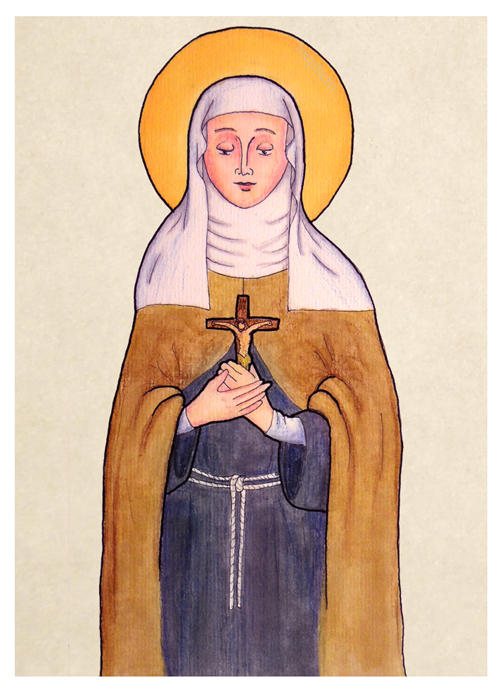One part of Angela da Foligno’s Memorial that interested me was on page 29, where Angela states that she wishes to die a “vile death”. This took place during the 14th step, where begins to wish that she could be “rightfully killed for faith in Him or love of Him”, as she wants to die for Jesus as he died for humanity. She then elaborates, stating that she wished to be crucified like Jesus was, but to be put in a ditch by her killer since she’s “not worthy to die as saints die”. She closes off this step by repeatedly saying how she wants her death to be horrid and long, and how it pains her that she “could not find a vile death”.
This part in particular interested me because over the course of this text, we see Angela’s self-worth completely diminish as she continues to devote herself to God. It starts off with wanting to give her things to the poor, then escalates to her not eating or drinking, then finally ending with her wishing to die and (literally) give her life to God. It seems as though over the course of cleansing her soul, Angela’s become desensitized to death. We first see this perspective in the beginning of page 27, as she informs the scribe about the deaths of her mother, husband, and children. While this would be tragic to most, she seems unphased by this as she believes “God accomplished these things for me”, which makes it clear that she puts her utmost trust in God and believes that he does everything for a reason. Her apathy towards death progresses and this is where we see Angela wish for a “vile death”, which shows that not even death cannot waver her sense of trust in God or her desire to cleanse her soul.




